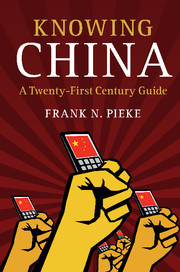Book contents
- Frontmatter
- Dedication
- Contents
- Preface
- Main Events in China, 1976–2015
- 1 Introduction: Knowing China
- 2 Why the Communist Party Will Not Fall from Power
- 3 China's Economy Will Continue to Grow, but Not Forever
- 4 Freedom without Universal Human Rights
- 5 From Empire to Nation, or Why Taiwan, Tibet and Xinjiang Will Not Be Given Independence
- 6 Not Just a Chinese Century
- 7 Conclusion: The Communist Party and China's Future
- Further Reading
- References
- Index
- References
References
Published online by Cambridge University Press: 05 July 2016
- Frontmatter
- Dedication
- Contents
- Preface
- Main Events in China, 1976–2015
- 1 Introduction: Knowing China
- 2 Why the Communist Party Will Not Fall from Power
- 3 China's Economy Will Continue to Grow, but Not Forever
- 4 Freedom without Universal Human Rights
- 5 From Empire to Nation, or Why Taiwan, Tibet and Xinjiang Will Not Be Given Independence
- 6 Not Just a Chinese Century
- 7 Conclusion: The Communist Party and China's Future
- Further Reading
- References
- Index
- References
- Type
- Chapter
- Information
- Knowing ChinaA Twenty-First Century Guide, pp. 196 - 215Publisher: Cambridge University PressPrint publication year: 2016

